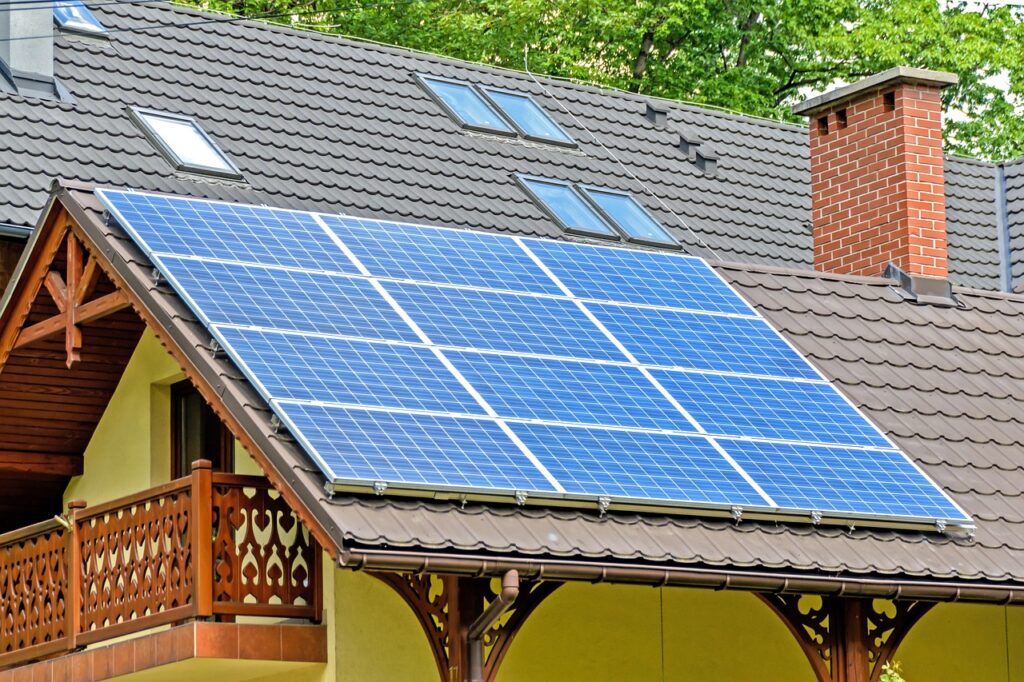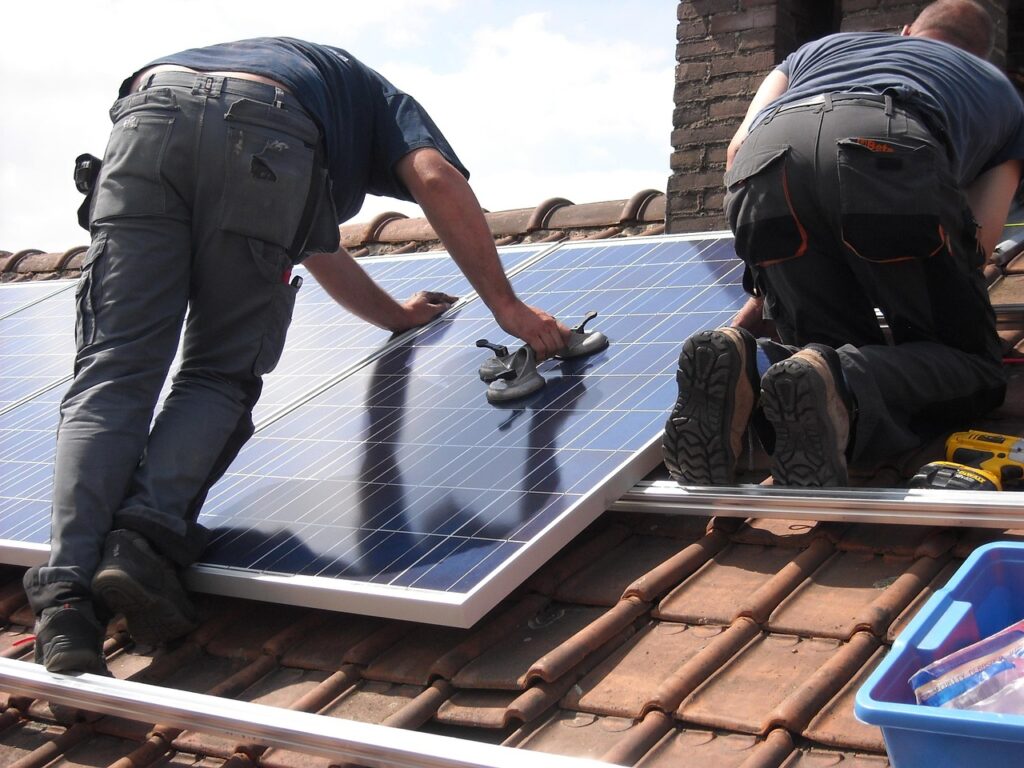Solar energy isn’t a new term. In fact, it became popular in the 1980s and is still widely used due to its exceptional benefits. Being an environment friendly, cost-effective and sustainable alternative to fossil fuels, solar energy has gained interest among businesses as well as homeowners. However, due to very high prices of system installations, many people still are confused about “whether solar-panels are worth-investing?”, “Are they going to be a good choice for our homes, offices or buildings?” To help you make a better decision, we have designed this post in which we’ll discuss the benefits and drawbacks of using solar energy
Statistics from U.S. Energy Information Administration (EIA) illustrate that generally, a residential solar power system generates about 350 to 850 kWh per month. Whereas, an average home consumes approx. 909 kWh of energy monthly. In other words, solar energy can help you save above 90% on your monthly electric bills, making it a must-have option, especially for establishments that largely depend on energy. (How Much Do Solar Panels Save?, 2022)
In 2015, the prices of solar panels dropped dramatically. If you’re planning to switch to solar energy, please check out the benefits and drawbacks listed below, before you get started.
BENEFITS OF USING SOLAR ENERGY

Following are the main benefits of using solar energy: –
- Prevents Production of Green-House Gases
The biggest advantage of solar energy is that it doesn’t use any fossil fuels. Solar panels depend entirely upon the sun’s radiations for the production of energy and so, do not contribute to any green-house gas emissions. The absence of smoke, gases and other harmful chemicals makes solar power “environment-friendly”; one of the basic initiatives of nations struggling to meet climate change obligations in reducing harmful emissions.
According to a study, “Adding 60 gigawatts of renewable energy to California could achieve 72% carbon dioxide reduction. Then, by adding some energy storage technologies on top of that in California could allow for 90% carbon dioxide reduction”
- Cuts Down Electricity Costs
Solar energy can help you save a handsome amount of money on your electricity bills. Since, your home or building is getting most of the energy from the solar panel system installed, using only a limited amount of electricity from the utility grid, your monthly electric costs will decline automatically.
Large panel systems can produce enough power for your entire home. Interestingly, you may even get credits for surplus energy that your system exports back to the grid.
The costs of traditional electricity continue to rise since fossil fuels like coal, oil and natural gas are highly susceptible to unpredictable foreign markets, switching to solar energy is no doubt, a cost-effective choice.
- Can be Used Almost Everywhere
Solar panels use sunlight; a readily available source for producing electricity. Hence, they can be installed almost everywhere. This feature makes solar energy particularly beneficial for remote regions, where there are no other means of electricity. Independent solar panel systems can be used in such areas to improve the quality of life of people living there. Moreover, spacecraft and boats can also be powered using solar energy.
- Enhances Grid Security
A utility grid with enough power stations is less susceptible to blackouts. But since the U.S. power grid is old and centralized, it is at high risk of power failures that result from overload, natural or human-caused disasters. Moreover, the grid is also affected by congestion. Solar energy can help enhance grid security by placing power generation close to the point of consumption, minimizing energy loss, reducing transmission congestion, and limiting our need for fossil fuels like coal, natural gas and oil. (Kasper, 2014)
- Reduces the Amount of Energy Lost During Long Distances
Electricity is transported from large power stations to the consumers through a system of networks. Longer distances between production plants and electrical grids lead to considerable loss of power. Most of these losses occur due to the Joule effect in electrical lines and transformers.
According to an estimate, 8% to 15% of electricity is lost throughout the cycle of production, transmission and distribution. (Schonek, 2013)
Installing solar panels in homes can minimize the distance, thus reducing energy losses.
DRAWBACKS OF USING SOLAR ENERGY

Following are the main drawbacks of using solar energy: –
- High Costs of Buying the System
Although solar energy cuts down your monthly electricity costs and the maintenance prices are also low, the initial buying and installation of the system are considerably expensive. The average rates for a home solar power system range from $10,000 to $30,000. There are two main causes of such high prices. The first is the cost of the raw materials used in advanced manufacturing required for the production of equipment. Second, professional solar installation. Coordinating with a reliable company when switching to solar power can be an intelligent option.
- Requires Large Spaces
Solar panels require sufficient space to be installed. These are fairly large products that are usually placed in a roof or yard. Therefore, homes with limited roof spaces often have to opt for smaller-size options. Today, the standard dimensions for residential solar panels are 65 x 39 inches (5.4 x 3.25 ft). However, the size slightly differs from one manufacturing company to another.
Due to the size restrictions, these can’t be installed in small areas, particularly those who are looking for big enough systems, this aspect is of special consideration.
- Largely Weather-Dependent
Solar panels convert the sunlight that hits their surface into solar energy. This means energy can’t be produced in the absence of the sun. Although electricity is generated during rainy and cloudy days, the efficiency of the system isn’t up to the mark. In fact, if the weather remains rainy or cloudy for a few consecutive days, you’ll observe a noticeable effect on the functioning of the system. This restricts the use of solar panels in areas that don’t get much sunlight. Solar power also can’t be generated during the night.
- Storage is Expensive
You can either use solar energy directly or store it for use as a backup source when the grid goes down or when the system is non-functional, such as during the night. Solar energy is stored in large batteries that are used in off-the-grid systems. Typically, these batteries are charged in the daytime and are used for supplying energy at night, thus making it possible to consume solar power throughout the day but these are very expensive and can’t be afforded by the majority. A solution to this problem is to draw energy from solar panels only during the day (since energy demand is usually high at this time) while simply relying on grid power at night.
- Generates Pollution During Production
Although solar energy is considered to be eco-friendly since it produces clean, renewable energy and doesn’t emit any greenhouse gases but its manufacturing process can be harmful to the environment. In the fabrication of solar panels, certain corrosive chemicals are used, such as hydrofluoric acid and sodium hydroxide. Besides, the process also involves burning fossil fuels that contribute to greenhouse gas emissions. Further, plastic waste is also produced. Thus, solar power is to some extent responsible for harming the environment but this drawback is often overlooked because of multiple other benefits of the system.
Conclusion
Solar energy has both advantages and drawbacks. However, we think that its advantages outweigh its drawbacks or limitations. Solar energy is sustainable, eco-friendly, cost-effective, reduces power losses and enhances grid security but the system is expensive to purchase and install, is largely weather-dependent, requires large spaces and its production contributes to pollution.
Now, you have to decide what actually matters for you. If you prefer reduced monthly bills over high costs of installations or if its versatile use matters for you rather than its large space requirements, this system is definitely for you. If you have decided to switch to a solar power system, contact a professional electrician from Sparkwise Electric for professional installation.

